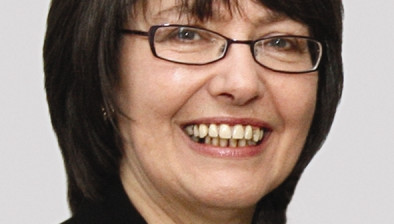Court of Appeal: Ambient DAR record should be made available to GSOC investigating Burke complaints

The Court of Appeal has determined that GSOC is entitled to both types of DAR recordings in respect of investigating complaints arising from events which occurred both in the courtroom and its environs for the purpose of fulfilling its statutory duty.

About this case:
- Citation:[2024] IECA 86
- Judgment:
- Court:Court of Appeal
- Judge:Mr Justice John A. Edwards
Delivering judgment for the Court of Appeal, Mr Justice John Edwards stated that there is an expectation of respectful conduct within the temporal and physical proximity of the courtroom and its environs both before and after judges arrive onto and leave the bench, and that “for so long as that expectation subsists, there are proceedings in being which the court has power to intervene to control or take action in respect of”.
The court was thus satisfied that pursuant to its inherent jurisdiction and its power under Order 123, rule 9 of the Rules of the Superior Courts to control its own processes, that it has the necessary jurisdiction to grant access to the ambient DAR if it sees fit.
Background
The Garda Síochána Ombudsman Commission (GSOC) applied pursuant to Order 123, rule 9 of the Rules of the Superior Courts (RSC) for access to the primary and ambient digital audio recording (DAR) covering courtroom no.1 in the Court of Appeal building of the Four Courts on 7 March 2023. The applicant was investigating complaints made by the Burke family as against gardaí in relation to their conduct during the incidents which occurred both in the courtroom and outside it on that date.
The application for the primary DAR was granted on consent of the parties, but the appellant, Mr Enoch Burke, contested the application for the ambient DAR which was sought for the period following the conclusion of the primary DAR and concluding when the courtroom had been cleared.
The issues for the Court of Appeal were whether it enjoys a jurisdiction in principle to grant access to the ambient DAR for criminal investigation purposes, and if so, whether it was appropriate and proportionate to grant access to the applicant.
The court noted that in circumstances where the ambient DAR system is owned and operated by the Courts Service, where the physical equipment is situate in the Courts Service’s estate, and where it was unclear who might be controllers and processors of the data recorded on the ambient DAR, the Courts Service was invited to participate as a notice party.
The Court of Appeal
The applicant’s affidavit suggested inter alia that on 7 March 2023, the court or a judge thereof may have ordered that the Burke family would be removed from the courtroom, that members of the family may have been injured in the process, and that it was unclear whether gardaí acted at the direction of the court or a court registrar to clear the courtroom, or whether they acted on their own initiative.
Mr Burke’s arguments included that the ambient recording sought did not constitute access to “a record of proceedings” in line with Order 123, and argued that the ambient DAR data was a form of “unlawful covert surveillance” not being processed fairly in accordance with the Data Protection Acts 1988- 2018 as, unlike the primary DAR, there is no indication to courtroom attendees that the ambient DAR exists and is in operation nor as to the purpose of the processing.
Mr Burke also asserted that the issue of whether the court ordered that the courtroom should be cleared could be addressed without the need for a recording of what happened after the court was no longer in session, and that the court did not make a direction to clear the courtroom on 7 March 2023 in any event.
Having heard the parties, Mr Justice Edwards considered that the Court of Appeal has jurisdiction under Order 123, rule 9 and pursuant to the inherent jurisdiction of the court to grant access to the ambient DAR.
The judge observed that the word “proceedings” appears throughout the RSC, finding it to be narrower in scope in the context of Order 123 as rule 9 must be read in conjunction with rule 2, having the effect that “the word “proceedings” used in this context is correctly to be interpreted as referring to events occurring during or proximately associated with a trial or the hearing of any cause or matter by a court…this interpretation is consonant with the definition of what constitutes a record in Order 125, in circumstances where that rule speaks of “a contemporaneous record of the proceedings”.
Mr Justice Edwards confirmed that in order to determine the temporal parameters of “proceedings” in this context, the word “proceedings” was to be given a purposive construction reflecting the plain intention of the makers of Order 123, rule 9 if that intention could be ascertained from the RSC as a whole in accordance with s.5(2)(a) of the Interpretation Act 2005.
Being satisfied that the makers’ intention was “to make provision for the creation of a formal record of proceedings of a superior court, and the granting by such court of access to that record in appropriate circumstances”, the judge emphasised that court’s control over access to court records “is but an aspect of each court’s entitlement to control its own process…the intention of the makers of the Rules of the Superior Courts, and Order 123 in particular, can only have been to provide a scaffolding of formal procedures for the exercise of that entitlement, and that it was not their intention to seek to constrain or limit the extent of that entitlement.”
Mr Justice Edwards confirmed that “the formalities and decorum expected of persons with business to transact in, or otherwise attending a court sitting, does not begin precisely with the arrival of a judge or judges onto the bench and end with a judge or judges’ departure from the bench. It extends to an expectation of respectful conduct both in temporal and physical proximity with the court, not just when the judges are actually on the bench, but also in the environs of the building where the court is sitting, both before and after the judge or judges arrive onto and leave the bench. I am satisfied that for so long as that expectation subsists, there are proceedings in being which the court has power to intervene to control or take action in respect of.”
The court concluded that the unacceptable behaviour which caused the Court of Appeal to rise on 7 March 2023 and the behaviour that continued thereafter was “part of the proceedings before the court on that day”.
Referring to the duty on part of GSOC to investigate the substance of the complaints made to it, the judge was satisfied that access to the ambient DAR was sought for a legitimate purpose connected with the discharge by GSOC of its statutory function.
The court then turned to s.41 of the 2018 Act which deems lawful the processing of personal data for a purpose other than that for which the data has been collected where necessary and proportionate for prevent, detecting, investigating or prosecuting criminal offences. The court also examined the provisions of S.I. No. 659/2018 - Data Protection Act 2018 (Section 159(1)) Rules 2018, which allows a data processor to disclose personal data contained in a court record to gardaí or a prosecuting authority for the purpose of investigating an offence or as evidence in the prosecution of an offence.
Finding that the taking up of the ambient DAR by the applicant was necessary to the criminal investigation being conducted, and proportionate due to the seriousness for gardaí of an assault allegation as against them and on the basis that court “disrupters… can have no expectation of privacy”. Mr Justice Edwards pointed out that in any event, the Court of Appeal has appellate jurisdiction only and so is not the appropriate forum for bringing a claim for breach of rights, and “neither is it possible for the appellant to assert the rights of others”.
The judge observed that in the context of the General Data Protection Regulation (GDPR) special rules apply to the courts in order to protect their independence, and that as Ms Justice Marie Baker is the supervisor of data processing operations of the courts when acting in their judicial capacity, Mr Burke should have voiced data protection concerns with her.
Conclusion
Accordingly, the court granted the reliefs sought by the applicant.
The Board of Management of Wilson’s Hospital School v. Burke [2024] IECA 86










